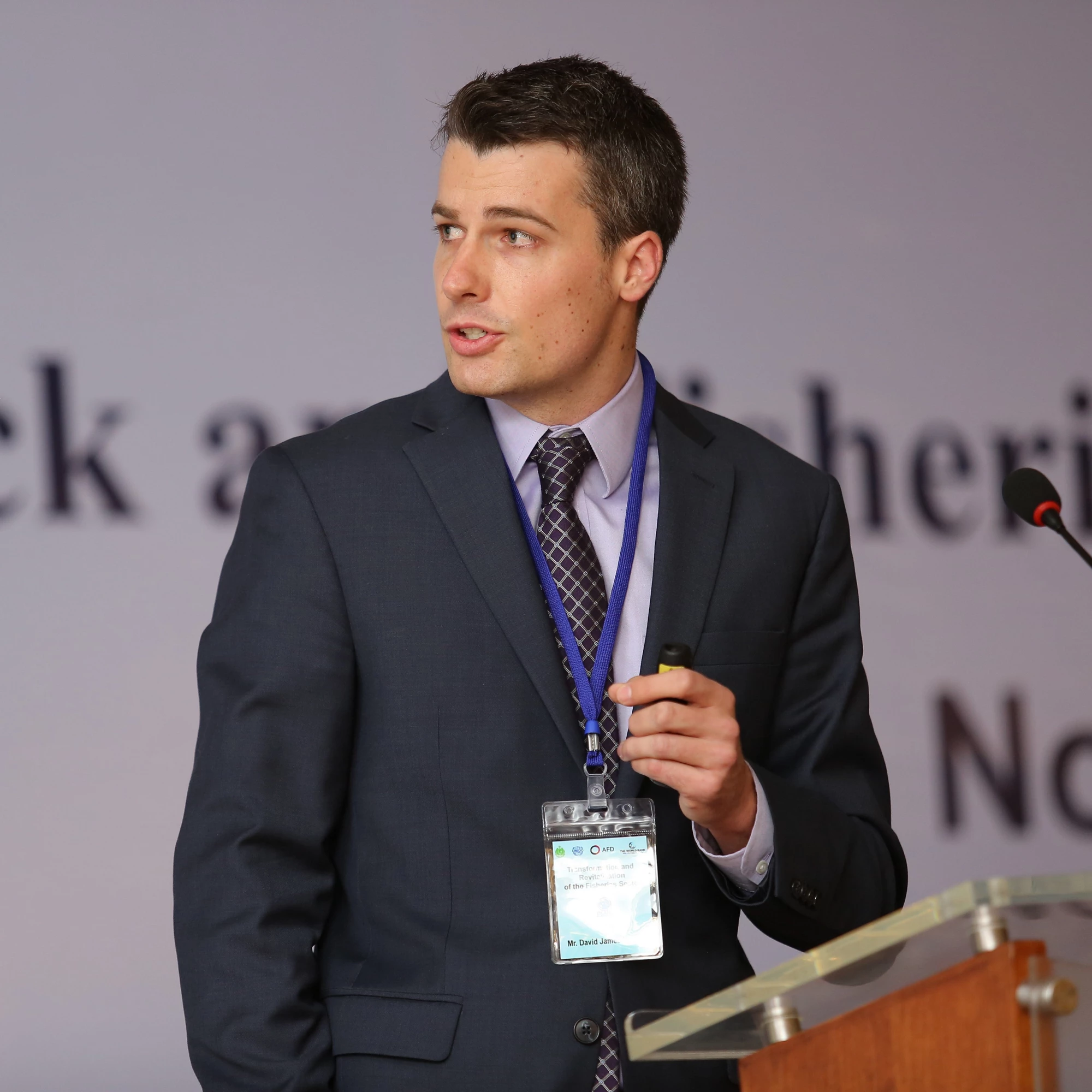 Fishermen removing freshly caught fish from nets in Nigeria
Fishermen removing freshly caught fish from nets in Nigeria
The impacts of climate change on nature are cumulative and dynamic. A climate-related shift in abundance and range for one species triggers shifts in others and cascades through ecosystems and the communities that rely on them. A case in point: the multiple impacts of climate change on fish. Rising temperatures, acidification, and sea-level rise are altering ocean conditions and displacing fish stocks. As a consequence, the maximum catch potential of some stocks is shifting from one country’s Exclusive Economic Zone to those of others. This phenomenon is expected to accelerate over the next decades, resulting in dire economic consequences, poorer food security, and lost livelihoods for entire communities and countries.
A 2019 study modeled for the first time the impacts of climate change on fish stocks. The study assessed the specific risk to African fisheries and their dependent communities, with staggering results: By 2050, the catch potential of many African countries, including the Democratic Republic of Congo, Côte d’Ivoire, Equatorial Guinea, Gabon, Liberia, and São Tomé and Príncipe, is projected to decrease by 30 percent or more. This decline would pose substantial risk to national economies and make it more difficult for countries to achieve several of the Sustainable Development Goals (SDGs), including SDG 14 – Life Below Water.
To facilitate a concerted effort by decision makers in coastal African countries to respond, the study identified pathways to mitigate climate change impacts and ultimately increase the resilience of fisheries. Even in the best-case scenarios, the models clearly show that the impact of climate change on fisheries will not be evenly felt, and that stressed fisheries resources, such as overfished stocks, are even more at risk. These projections call for the strongest possible measures to help stocks and ecosystems absorb the impacts of climate change – for example, by giving fish stocks a break, including through measures such as reduction in fishing effort, strengthened monitoring control and surveillance, and marine protected areas.
"By 2050, the catch potential of many African countries, including the Democratic Republic of Congo, Côte d’Ivoire, Equatorial Guinea, Gabon, Liberia, and São Tomé and Príncipe, is projected to decrease by 30 percent or more."
Forecasting climate change impacts on fish elsewhere
But what about other parts of the world? Could other coastal countries also face depleted fish stocks because of climate change? And what can they do to prepare their economies?
Take Indonesia: Over 13,000 kilometers away from West Africa and comprising over 17,000 islands, Indonesia is particularly vulnerable to the impacts of climate change on oceans. The World Bank is helping Indonesia tackle this problem with support from the David and Lucille Packard Foundation and PROBLUE, a multi-donor trust fund to assist countries as they chart a course towards a Blue Economy—the sustainable and integrated development of oceanic sectors in healthy oceans.
Drawing directly on the approach developed in the Africa study, the World Bank convened a research team to replicate the analysis for fisheries in Indonesia. Downscaling the country-level approach used in Africa at a sub-national level, they aim to forecast the ecological and socio-ecological impacts of climate change on the country’s most important commercial fish stocks, to identify regions that are home to the most vulnerable communities, and to develop a framework for adaptation policies, drawing on inputs from stakeholders across the fisheries sector.
The joint team comprises researchers from the University of British Columbia, the University of Bern, the World Bank, and Indonesia’s Ministry of Marine Affairs and Fisheries - a mix designed to help develop technical capacity, transfer knowledge, and build opportunities for long-term scientific collaboration. The partnership aims to further explore the links between climate change, marine fisheries, and the coastal communities that depend on them, with a view to helping inform long-term adaptation programs.
With continued support from PROBLUE, the World Bank will scale up and replicate this knowledge approach by developing similar programs in other countries and regions, working with client countries, academia, and other stakeholders in fisheries research and policy to develop real solutions to a growing problem that threatens marine fisheries around the world.






Join the Conversation